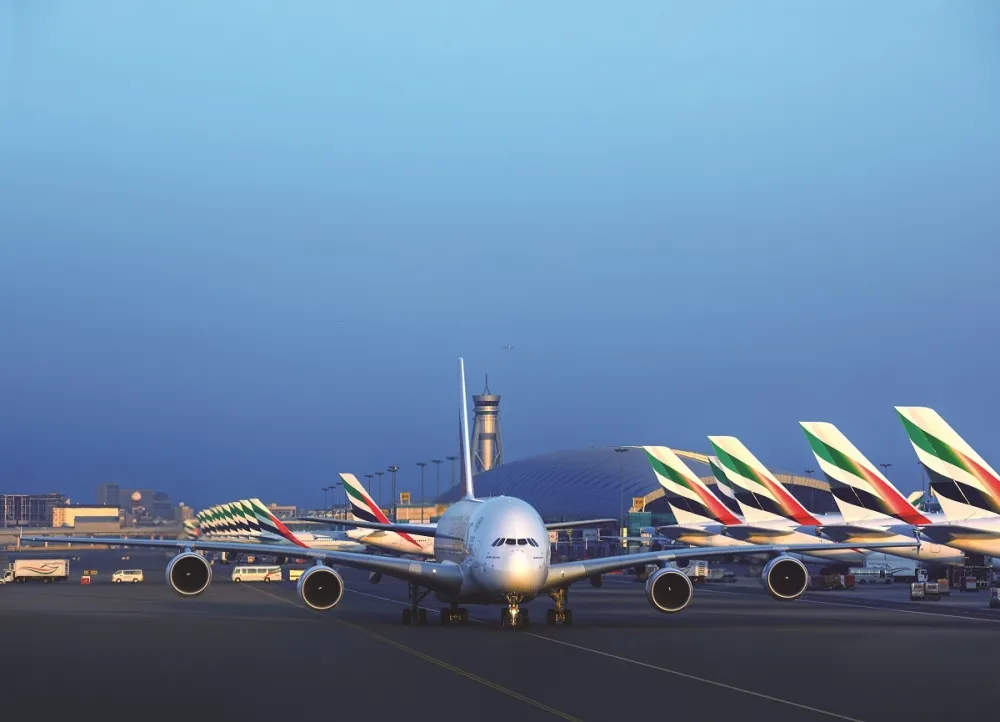
Business passengers to reduce travel if laptop ban expanded
Jun 01, 2017

The potential expansion of laptop bans on flights could significantly impact business travelers, who often rely on their devices for productivity during travel. With restrictions in place, many may reconsider the necessity of air travel, opting for alternatives such as video conferencing or train services to maintain efficiency. This shift could lead to a decrease in demand for air travel among corporate clients, as the inconvenience of managing without laptops becomes a significant deterrent. Consequently, airlines may face reduced revenue from business passengers and will need to adapt their services to accommodate changing travel preferences.
In recent discussions regarding air travel regulations, the possibility of expanding a laptop ban on flights has raised significant concerns among business travelers. A survey conducted by various travel agencies indicates that a large percentage of business passengers may reconsider their air travel habits if such a ban were to be implemented. This article delves into the potential impact of an expanded laptop ban on business travel, highlighting the key factors that could influence these decisions.
The Importance of Laptops for Business Travelers
For many business professionals, laptops are essential tools for productivity. They enable passengers to work on the go, attend virtual meetings, and manage critical communications. An expanded laptop ban could disrupt this workflow, leading to frustration and decreased efficiency. According to the survey, 68% of respondents indicated that they rely heavily on their laptops during flights to stay connected and productive.
Survey Results: Business Travelers' Concerns
To better understand the potential consequences of a laptop ban, researchers gathered data from over 1,000 business travelers. The results were revealing:
| Concern | Percentage of Respondents |
|---|---|
| Reduced Productivity | 72% |
| Increased Travel Costs | 65% |
| Change in Travel Plans | 58% |
| Preference for Alternative Transport | 52% |
These statistics illustrate that a significant portion of business travelers would either reduce their travel or seek alternative means of transportation if they were unable to use their laptops during flights.
Potential Alternatives to Air Travel
If the laptop ban is expanded, business travelers may turn to alternative modes of transportation. Options such as train travel or driving could become more appealing, particularly for short to medium distances. For instance, high-speed trains can offer a comfortable and productive environment, allowing travelers to work without the constraints of a laptop ban.
Impact on Airline Industry
The airline industry could face substantial repercussions if business passengers choose to limit their travel. Airlines rely heavily on business travelers for revenue, as these passengers typically pay higher fares and are less price-sensitive than leisure travelers. A shift in travel patterns could lead to:
- Decreased Revenue: Airlines may see a drop in ticket sales due to reduced demand from business travelers.
- Increased Competition: Other forms of transport may become more competitive, prompting airlines to innovate or adjust their offerings.
- Changes in Flight Schedules: Airlines may need to revise their flight schedules to accommodate lower demand, potentially leading to fewer flight options.
Workarounds for Business Passengers
While an expanded laptop ban would pose challenges, business travelers could explore various workarounds to maintain productivity:
- Using Tablets or Smartphones: Many business travelers might opt for tablets or smartphones, which could still be allowed on flights. These devices can handle emails, presentations, and video calls, albeit with some limitations.
- Offline Work: Preparing documents and presentations offline before boarding can help maximize productivity without relying on a laptop.
- Utilizing Airport Lounges: For travelers on layovers, airport lounges can provide a quieter environment to work without the distraction of a busy terminal.
The Future of Business Travel
As the travel industry navigates these potential changes, the future of business travel remains uncertain. It is essential for airlines and travel providers to listen to the concerns of their business passengers. Adapting to the needs of this demographic will be crucial in retaining their loyalty and ensuring continued profitability.
In conclusion, the potential expansion of a laptop ban could significantly alter the landscape of business travel. With many professionals indicating a willingness to reduce travel if such a ban is implemented, airlines must proactively address these concerns. By understanding the needs and preferences of business passengers, the travel industry can work towards solutions that balance security measures with the requirements of modern business travel.
Related Articles

Explore Thailand: The Best Islands to Visit for Paradise, Adventure, and Relaxation

The Ultimate Guide to the Best Islands in Thailand for Your Next Getaway

Do babies need passports? How to get a passport for a newborn

How to get a U.S. passport fast: here’s how to expedite the process

What is Mobile Passport Control: 5 reasons why you should use it

SENTRI vs. Global Entry: A detailed guide

Do you need a passport to go to the Bahamas? Let’s find out

Do you need a passport to go to Mexico? A detailed guide

Do you need a passport to go to Canada? We got the answer

Do You Need a Passport for a Cruise: An Essential Travel Guide

Booster Seat Requirements: All the Rules to Follow in Your Rental Car

What Are the World’s Most Powerful Passports, and How Does Yours Rank?

How to Take a Passport Photo at Home: A Helpful Guide

You've got to have heart! Southwest's new livery

Your opinion: Should water be free on low cost carriers?

Young women bolder than guys as solo travellers
